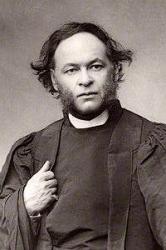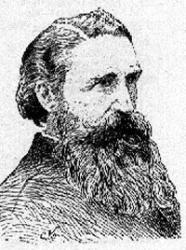1701 - 1762 Person Name: J. Krause Hymnal Number: a113 Author of "Alleluia! fairest morning" in In Excelsis Krause, Jonathan, son of Christian Wilhelm Krause, Master of the Clothworkers and Sexton at Hirschberg, in Silesia, was born at Hirschberg, April 5, 1701. Entering the University of Leipzig in 1718, he went in 1723 to Wittenberg, where he graduated M.A. He was then for some time travelling tutor to a young Baron von Birken, and 1727-32 a tutor in the family of Baron von Nostitz, at Polgsen, near Wohlau. On Aug. 20, 1732, he was ordained as Diaconus of Probsthayn, near Liegnitz, and in 1739 became chief pastor of the Church of St. Peter and St. Paul at Liegnitz. In 1741 he was also appointed Superintendent and Assessor of the Consistory. He died at Liegnitz, Dec. 13, 1762 (S. J. Ehrhardt's Presbyteroloqie Schlesiens, 1780-89, iv. p. 280, &c). He edited the Liegnitz Gesang-Buch of 1745. His hymns appeared in his
(1) Die turn Lobe Gottes eröffnete Lippen der Gläubigen, &c, Hamburg, 1732, and (2) Gnade und Wahr heit Gottes in Christo Jesu, in heiligen Liedem über alle Sonn- und Fest-Tags Evangelien und Eputeln Leipzig and Lauban, 1739. [Berlin Royal Library.]
The only hymn by Krause translated into English is:--
Alleluja! schöner Morgen. Sunday Morning. This hymn, a great favourite in Southern Germany, first appeared 1739 as above, p. 487, in 9 stanzas of 6 lines, entitled "Morning-Hymn on Sunday." Repeated thus in the Liegnitz Gesang-Buch, 1745, No. 1; but in recent collections, as the Württemberg Gesang-Buch, 1842, and the Unverfälschter Liedersegen, 1851, No. 482, it begins "Hallelujah!" Sometimes erroneously ascribed to B. Schmolck. Translated as:—
Hallelujah! Fairest morning. A good translation, omitting stanzas v., vii., viii., by Miss Borthwick, in Hymns from the Land of Luther, 3rd Ser., 1858, p. 28 (1884, p. 150). Included in full in the Appx. of 1869 to the Society for Promoting Christian Knowledge Psalms & Hymns; in Holy Song, 1869, and others. In the S. P. C. K. Church Hymns, 1871, the trs. of st. iii., iv. are omitted, and the rest slightly altered; and this form is followed in Laudes Domini, N. Y., 1884. In G. S. Jellicoe's Collection, 1867, it begins "Alleluia."
Other translations are, (1) "Hallelujah! beauteous morning," by Miss Manington, 1863. (2) "Hallelujah! day of gladness," by R. Massie, in the Day of Rest , 1876, p. 35. [Rev. James Mearns, M.A.]
--John Julian, Dictionary of Hymnology (1907)
Jonathan Krause


 My Starred Hymns
My Starred Hymns




